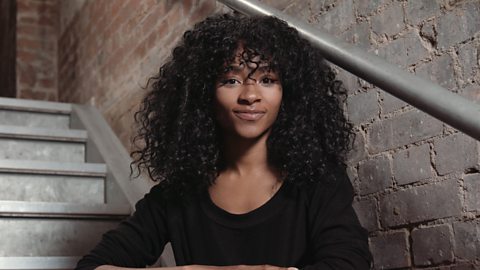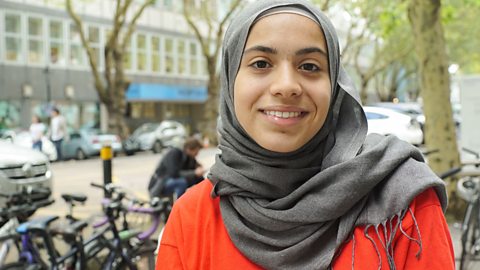
Age
19
Company
StreetDoctors
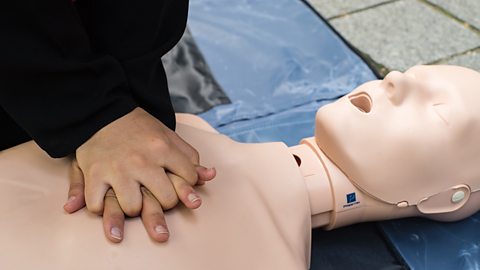
In my job
An internship is an opportunity to see what it is like to work within an organisation. For me, it means a lot more responsibility and a chance to work in a team. I am also a medical student and enjoy learning from providing services to the community. I teach first aid to young people. I teach them they could make a difference, that one day they could save someone’s life before an ambulance comes.

I talk to young people about blood and I teach them what to do when someone is bleeding.
At school
I took Triple Science because I knew I wanted to go into a science field, and I took Geography because I was interested in global health. I also volunteered to create a food bank for the homeless in Year 11 at school and took part in activities with the National Citizen Service (NCS). These experiences helped my leadership and team working skills, and really built my confidence. At 16 I volunteered at refugee camps in Greece. That was when I knew I wanted to study medicine, to help people.
At medical school
My knowledge of the human body plays a role in my work as a medical student and community activist because I can tell people that wounds and blood loss can affect everything from your heart and organs, muscle system, nutrition and digestive systems.
Top tips
If you are considering a career in medicine, I would do a lot of extra-curricular things. Anything. It doesn’t have to be based on medicine. It could be giving back to your community. It allows you to step up and get more opportunities.
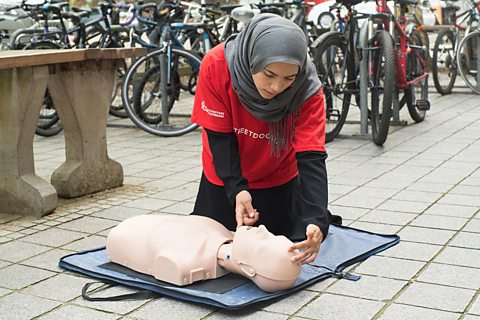
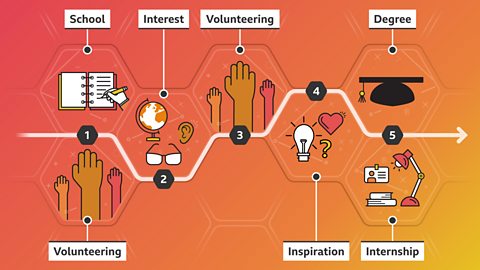

After Khadija finishes her studies, she can qualify as a doctor or GP and work in a number of different locations such as a hospital, in the community or in a general practice or surgery. If she works in a general practice, she will be known as a GP (general practitioner). GP's are doctors who provide medical services to people in their local community.
What to expect if you want to be a doctor
- Doctor average salary: NHS bands 8b - 8d. Read more about . Salaries will differ in private healthcare.
- Doctor typical working hours: 45 to 50 hours per week, including evenings, weekends and bank holidays.
What qualifications do you need to be a doctor?
You can get into this role via a university course. You'll need to complete:
- a 5-year degree in Medicine, recognised by the General Medical Council
- a 2-year foundation course of General Training
- a 3-year specialist training course in General Practice
You may be able to join a 6-year degree course in Medicine if you have no Science qualifications. This includes a one-year pre-medical or foundation year. Medical schools will also expect you to have some relevant paid or voluntary work experience. The has information on finding a placement.
Sources: LMI for All, National Careers Service
This information is a guide and is constantly changing. Please check the website for the latest information and all the qualifications needed.
For careers advice in all parts of the UK visit: , , and .

Find work experience placements with Workfinder.
Tips and advice
Help with interviews, writing a CV and all things work experience related.

Shola: trainee karate instructor. video
Shola uses her knowledge of the body in her role as a trainee karate instructor.
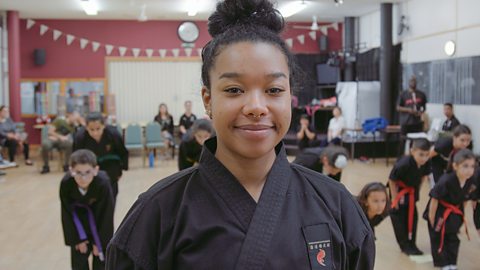
Lucy: vet
Lucy uses her knowledge of Biology in her job as a vet.
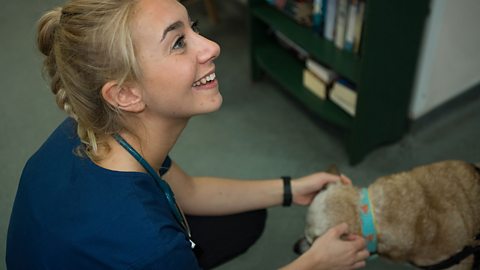
Rachel: dancer and choreographer. video
Rachel uses her knowledge of the body to teach people how to dance.
